The War Within (64 page)
Authors: Bob Woodward
Tags: #History: American, #U.S. President, #Executive Branch, #Political Science, #Politics and government, #Iraq War; 2003, #Iraq War (2003-), #Government, #21st Century, #(George Walker);, #2001-2009, #Current Events, #United States - 21st Century, #U.S. Federal Government, #Bush; George W., #Military, #History, #1946-, #Presidents & Heads of State, #Political History, #General, #Biography & Autobiography, #Politics, #Government - Executive Branch, #United States

Ron Edmonds (Associated Press): 10
Gerald Herbert (Associated Press): 9
Nikki Kahn
(The Washington Post)
: 14, 27
Courtesy of Senator Carl Levin: 26
Melina Mara
(The Washington Post)
: 25
Gerald Martineau
(The Washington Post)
: 5
Hadi Mizban (Associated Press): 30
Pablo Martinez Monsivais (Associated Press): 13, 21
Bill O'Leary
(The Washington Post)
: 16
Robert A. Reeder
(The Washington Post)
: 15, 17
Paul J. Richards (Getty): 2
Ali Abu Shish (Reuters): 29
Mike Theiler (Reuters): 31
Evan Vucci (Associated Press): 12
Susan Walsh (Associated Press): 20
Jim Young (Reuters): 11, 19
Ronen Zilberman (Associated Press): 28
ABOUT THE AUTHOR
Bob Woodward is an associate editor at
The Washington Post,
where he has worked for 37 years. He has shared in two Pulitzer Prizes, first for the
Post
's coverage of the Watergate scandal, and later for coverage of the 9/11 terrorist attacks. He has authored or coauthored eleven #1 national nonfiction bestsellers, including three on the current administrationó
Bush at War
(2002),
Plan of Attack
(2004) and
State of Denial
(2006). He has two daughters, Tali and Diana, and lives in Washington, D.C., with his wife, writer Elsa Walsh.
Photographic Insert
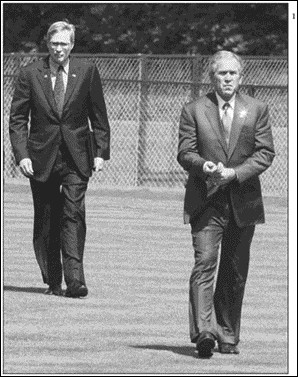
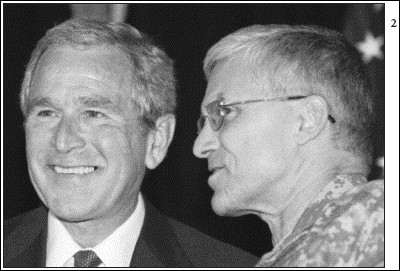
"If I feel it, he feels it. If he feels it, I feel it," National Security Adviser Stephen J. Hadley said of his
relationship with President George W. Bush. The president gave Hadley responsibility for the 2006 Iraq
strategy review. "Let's just cut to the chase here," Bush said. "Hadley drove a lot of this."
"We have to win," Bush told General George Casey on June 13, 2006, in Baghdad. "I'm with you," Casey
replied. "I understand that. But to win, we have to draw down." Despite his public show of support, Bush was
losing confidence in the drawdown strategy. And Casey had come to believe the president did not understand
the war.
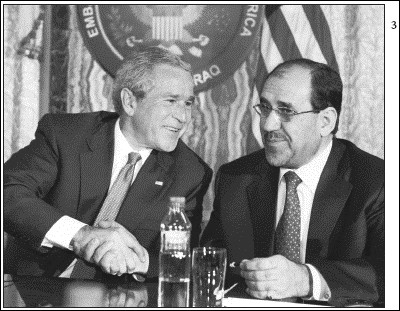
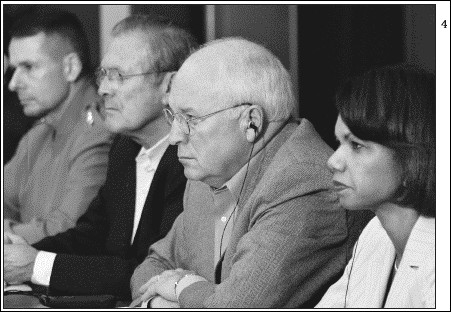
"He's never been the head of a country before. He's going to have to learn," Bush said of new Iraqi Prime
Minister Nouri al-Maliki in 2006. "And I'm going to have to engage with him personally to help him learn."
"I've decided to replace Rumsfeld," President Bush told Vice President Dick Cheney in early November 2006.
"Well, Mr. President," said Cheney, "I disagree, but obviously it's your call."
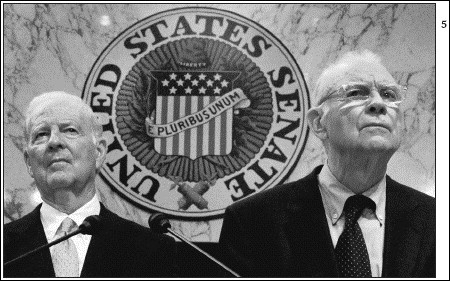
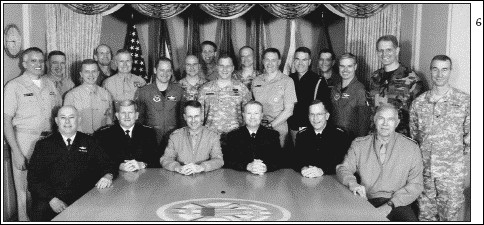
The bipartisan Iraq Study Group, headed by Republican James A. Baker III and Democrat Lee Hamilton,
interviewed every key policy maker on Iraq, including the president, and traveled to Baghdad to meet with
U.S. military commanders and Iraqi leaders. The first line of the group's report, released in December 2006,
stated, "The situation in Iraq is grave and deteriorating."
In the fall of 2006, General Peter Pace convened a secret internal review with some of the rising stars from
every branch of the military. Nicknamed the Council of Colonels, they reported regularly to the Joint Chiefs.
But their findings never were presented to the secretary of defense or President Bush.
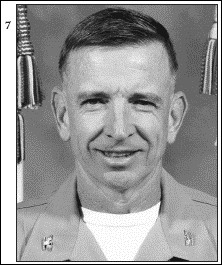
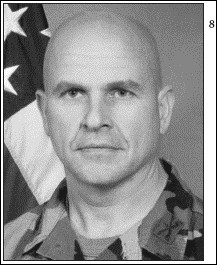
Colonel Tom Greenwood worked on Bush's National Security Council staff during 2003ñ04. As part of the
Council of Colonels, he was chosen to deliver the group's bleak conclusion to the Joint Chiefs:
"We are not
winning, so we are losing."
Colonel H. R. McMaster, the author of
Dereliction of Duty,
which exposed the weaknesses of the Joint Chiefs
during the Vietnam War, found success as a ground commander in Iraq. His counterinsurgency tactics in Tall
Afar became a model for protecting the population. A member of the Council of Colonels, he later became an
adviser to General David Petraeus.
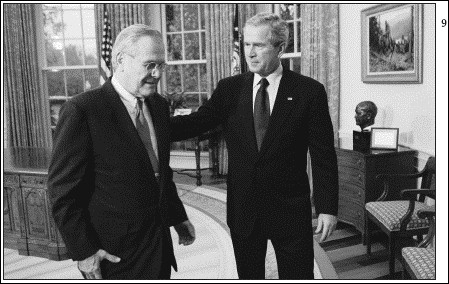
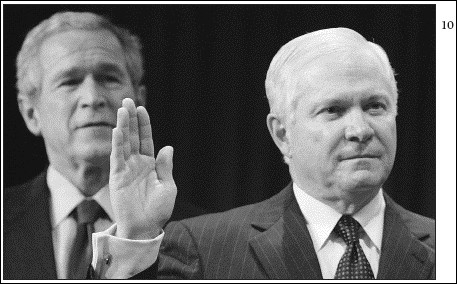
Donald H. Rumsfeld, who had served as Bush's defense secretary from the beginning, wanted to hasten the
handoff of responsibility to the Iraqis. "We have to take our hand off the bicycle seat," he said time and again.
He vowed to resign if the Republicans lost either the House or the Senate in the 2006 election. The day after
the election, Bush announced Rumsfeld's resignation and named Robert Gates as his replacement.